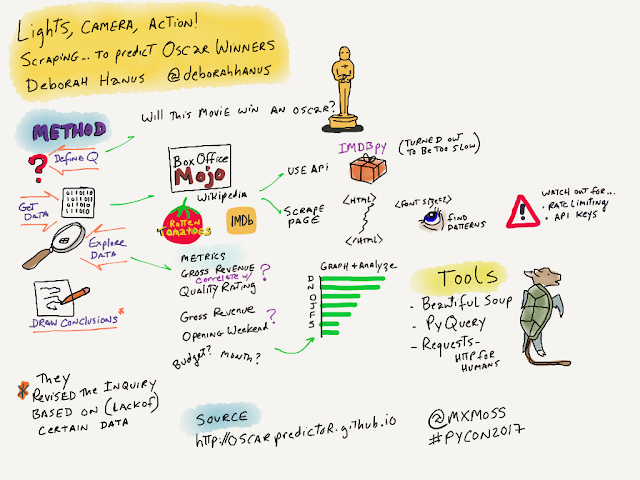Once again I had the opportunity to attend the Pacific NW Software Quality Conference (PNSQC) in Portland, Oregon in October. Although "Scaling Quality" was the official theme, the unofficial subtext seemed to be the importance of recognizing that people and teams have feelings. Humanity, doubt, uncertainty and joy were all topics covered by speakers. Unfortunately, I missed Penny Allen's keynote on the first day on "Quality Engineering 2017: Trends, Tricks, and Traps," but here are my sketchnotes from the talks I attended.
In "The Power of Doubt," Zeger Van Hese acknowledges that "I don't know" may be the hardest phrase for any tech team to admit, but at the beginning of any project it is the most honest answer. He discussed how to use skepticism and the scientific method to explore assumptions and advance incrementally without bias.
Clyneice Chaney's presentation "Trimming Down your QA Effort While Maintaining Quality" covered ways for companies to apply Lean manufacturing principles to QA and development. She looked at techniques for finding waste and methods for applying Lean solutions.
Taking a cue from Stephen Covey, Phil Lew examined the "Seven Habits of Highly Effective Agile." His message is that agile is a long-term habit, and building an agile mindset takes time and should be deliberate.
In Lee Copeland's talk he applied ideas from Eric Ries' "The Lean Startup" to the test environment. "The Lean Startup Method and Its Value for Testers" related the core ideas of a the book: customer development, the build-measure cycle, the MVP, validated learning and "1 metric" to the testing process.
Katy Sherman started her keynote with a some early morning dancing and then a flashlight poll to ask "Who Owns Quality In Agile?" Then she got into the tough questions: after the first success of an agile transformation, how to integrate Quality into the full development lifecycle?
A definition of ecology is "the branch of biology that deals with the relations of organisms to one another and to their physical surroundings." In his talk "Product Ecology for the Elicitation of Requirements," Ruud Cox explained his method for exploring the relationships between the system under development and the people and environment where it will be used. By using various heuristics he maps the ecology of the stakeholders and other ecosystems such as value chains, supply chains, and user scenarios. He talked about using this method on projects ranging from medical devices to parking lot streetlights.
I didn't get a chance to sketchnote it, but Berglind Bergsdóttir's presentation on "Feeling Like a Fake – The Impostor Syndrome" was inspiring and endearing. Her presentation was both vulnerable and empowering at the same time.
Bhageerathi Bai asked "How Do You Measure Success Rate of Large Scale Agile Process?"
Her team's project was to achieve alignment among all the Scrum teams in the company. She presented the case study and lessons learned along the way.
In "Scalable, Humane Code Review" Ian Dees pointed out a paradox: sometimes we can be more humane by automating the parts of the process that raise conflict. As he mentions, "let the robot be the enforcer."
Of all the talks, I was most looking forward to hearing from Rich Sheridan of Menlo Innovations and the author of "Joy, Inc." Earlier this year I had read his book as part of an Agile book club, and Menlo sounded like an ideal workplace. Later that day I had the opportunity to have dinner with Rich and some other PNSQC attendees, and he was as gracious and interesting as his writer's voice is in the book. My notes on his closing keynote "Build A Workplace People Love – Just Add Joy" are very sparse -- mostly because he covers the details much better in his book, but there were a few points I wanted to pull out for posterity.



























